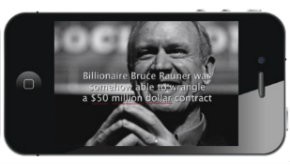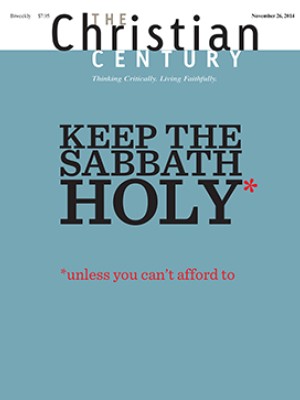Toxic politics

The Illinois gubernatorial election was important. The state is in dreadful shape, with huge debt and underfunded pension liabilities. But during the campaign, debate on these economic issues was overshadowed by low-minded attacks. Televised ads charged one candidate with negligence regarding the nursing homes where he had financial interest. That ad was countered with one accusing the second candidate of releasing incarcerated criminals who then committed major crimes, including rape and child molestation. Often these ads came back-to-back between innings of the World Series. I was grateful for the mute button on the television remote.
Who pays for these commercials? Not the official Democratic or Republican campaign organizations, but political action committees (PACs) and lobbies whose donors remain anonymous because of the Supreme Court’s decision in the Citizens United case. In a recent editorial, New York Times journalist Timothy Egan asked, “How did we lose our democracy? Slowly at first, and then all at once. This fall, voters are more disgusted, more bored and more cynical about the midterm elections than at any time in at least two decades” (“The Disgust Election,” October 23).
Read our latest issue or browse back issues.
Citizens United removed restrictions on the amounts that individuals and organizations can contribute to political campaigns anonymously. The effect has been dramatic—and toxic. Spending from outside groups increased from $5 million in 2000 to $1 billion in 2012. Clearly the court gave the very wealthy enormous power to manipulate the political process.
The Supreme Court is also upholding voter identification laws that could keep as many as 600,000 people from voting, mostly poor people and minorities. Ironically, there is very little evidence that voter fraud is a problem. In her dissent from the court’s decision, Justice Ruth Bader Ginsburg called the law “purposefully discriminatory” and “one that likely imposes an unconstitutional poll tax.”
The effect of the two decisions is to increase voter cynicism. That’s not new, of course. In 1828 John Quincy Adams’s presidential campaign called Andrew Jackson’s mother a prostitute and accused his wife of promiscuity. Abraham Lincoln was mocked as “ape-like,” and one newspaper suggested that he moved to Illinois to scare away wolves. In a frightening ad showing a little girl picking petals from a daisy, Lyndon Johnson’s campaign suggested that Republican Barry Goldwater would start a nuclear war if elected. Elizabeth Dole called Kay Hagan “godless” in her 2000 senatorial campaign, a move that some say contributed to her losing the election.
Political analysts and academics are studying the proliferation of negative advertising. Ruthann Weaver Lariscy, a journalism professor at the University of Georgia, says we are flooded with these negative ads “because they work and work very well” in a climate of political apathy and inactivity.
It saddens me that negative political advertising works. I’m haunted by Dietrich Bonhoeffer’s observation that the great sin of respectable people is refusing to be responsible. But at the same time my faith gives me hope for saner, more responsible, and issues-oriented political campaigns in the future.






